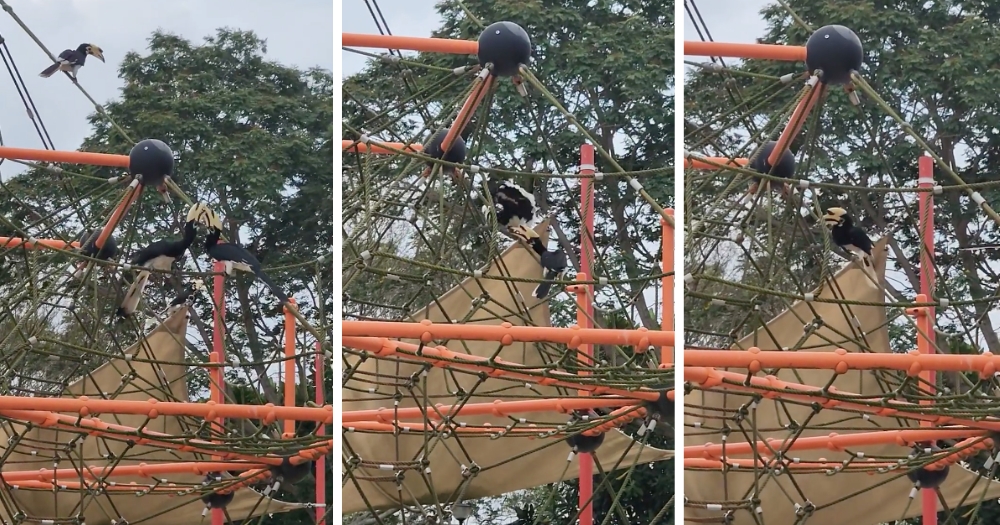Follow us on Telegram for the latest updates: https://t.me/mothershipsg
For most, playgrounds hold fond childhood memories of enjoying life and being carefree.
A flock of hornbills were recently caught living their best life at Changi Beach Park's playground too.
Hornbills' fun times
On Apr. 1, Facebook user Jun Yew posted a video of a group of at least five hornbills frolicking on a climbing structure.
There appeared to be at least five individuals perched on the ropes and beams.
Two of the birds could be seen tussling with their beaks, nipping at each other as they hopped onto different parts of the structure.
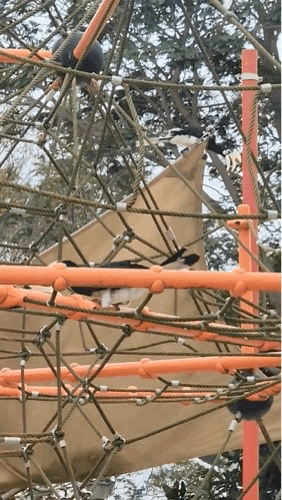 GIF via Jun Yew/ FB
GIF via Jun Yew/ FB
After a while, one of the hornbills hopped on the edge of the netting and flew away.
The video then pans to the left, where another pair of hornbills were seen having some fun.
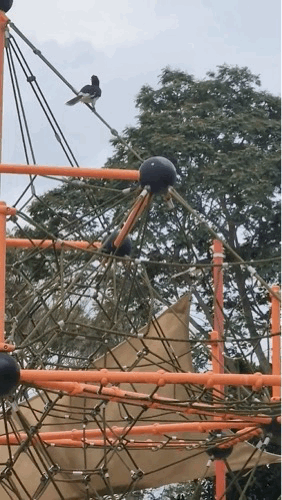 GIF via Jun Yew/ FB
GIF via Jun Yew/ FB
The birds can be seen hopping to different levels of the net, chasing each other and nipping each others beaks.
Another hornbill then joins in as one bird flies away, and they play for a while longer.
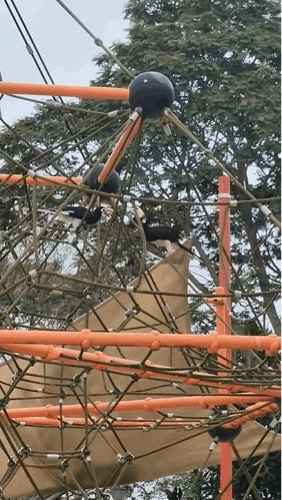 GIF via Jun Yew/ FB
GIF via Jun Yew/ FB
Changi Beach
One eagle-eyed netizen posited that this took place at the playground at Changi Beach Park.
 Image via Jun Yew/ FB
Image via Jun Yew/ FB
It certainly looks like it from pictures of the playground online.
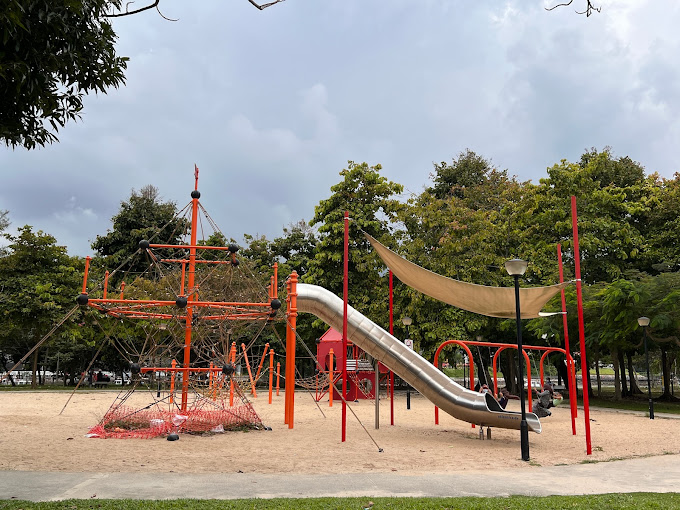 Image via Olevia Cheong / Google Maps
Image via Olevia Cheong / Google Maps
What are Oriental Pied Hornbills?
The birds in the video are Oriental Pied Hornbills.
According to the National Parks Board (NParks), they are identified by their large size, black plumage and white patch on their face.
The bird has a pale yellow bill and a small casque, which is a structure resembling a helmet on its bill.
This hornbill is all black except for the white edge of its wings, belly and under tail when flying.
They feed on fruit and on small animals such as reptiles, birds and mammals. This species has been known to pry open bird cages to prey on pet songbirds in urban areas.
NParks states that they nest in suitable holes in trees, with the female hornbill sealed inside and the male hornbill bringing her food.
It is a resident of Singapore, but despite being deemed of "Least Concern" globally by the International Union for Conservation of Nature (IUCN), it is listed as "Near Threatened" on Singapore's Red Data Book.
Related articles
Images via Jun Yew/ FB.
If you like what you read, follow us on Facebook, Instagram, Twitter and Telegram to get the latest updates.
